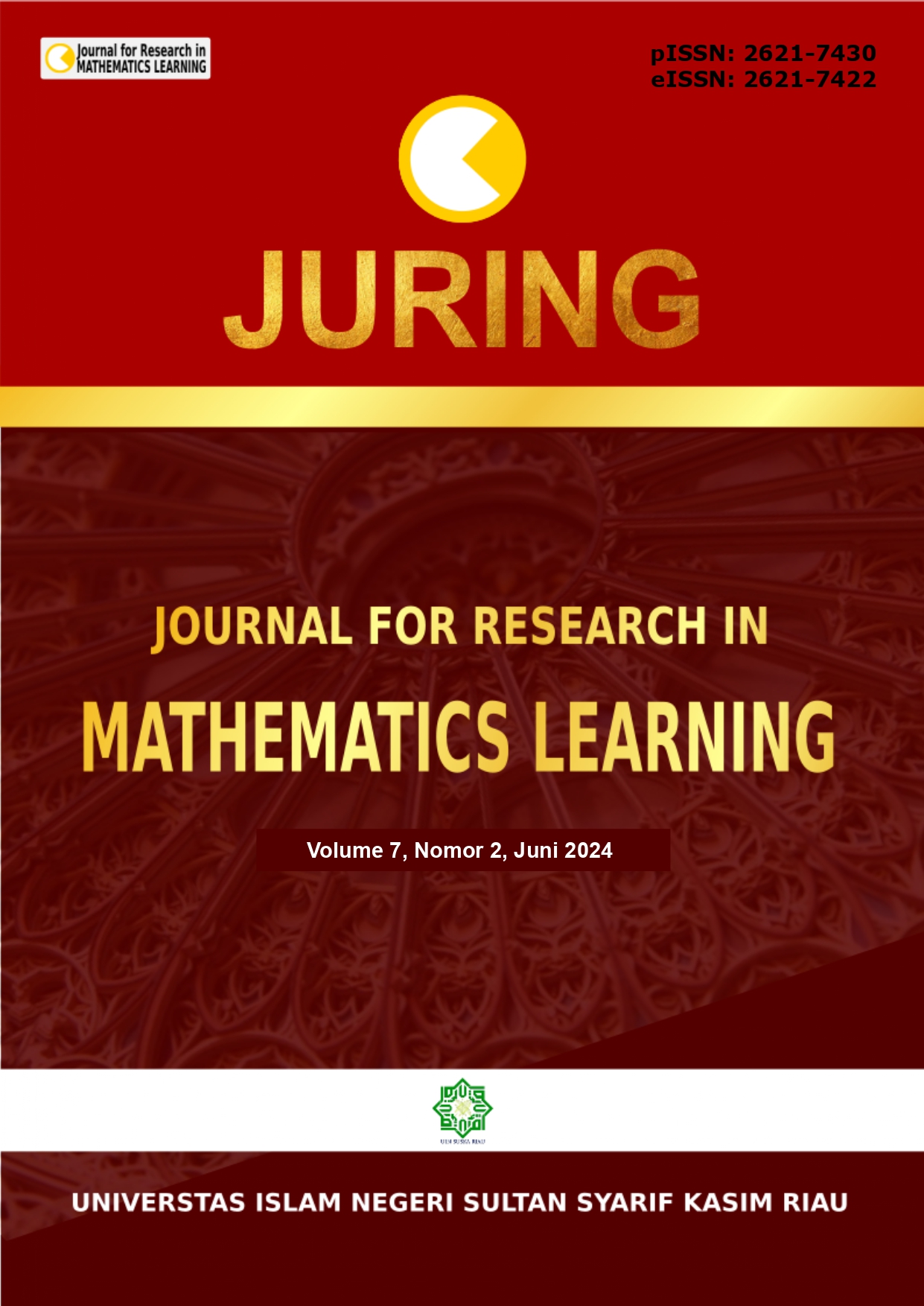Pengembangan Modul Metodologi Penelitian Berbasis Penemuan Terbimbing di STAIN Bengkalis
DOI:
https://doi.org/10.24014/juring.v7i2.26413Abstract
This research aims to determine the process and results of developing a research methodology module based on guided discovery that meets the criteria of valid, practical and effective. This research is development research which uses the ADDIE development model. The research was carried out at STAIN Bengkalis with a sample of 5th semester students who were taking research methodology courses. The data collection techniques used were tests and questionnaires with research instruments, namely questionnaires in the form of validation sheets and student response sheets as well as question sheets on research methodology material. Based on the results of the data analysis that has been carried out, a conclusion is obtained, namely that the research methodology module that was developed and has gone through the validation stage by experts is declared to have met the valid criteria. Furthermore, based on the results of filling out the questionnaire by students, it was concluded that the research methodology module developed had met the practical criteria and finally, based on the results of the final assignment analysis in this research methodology course, the effectiveness test showed that the research methodology module developed was effective.References
Aldo, N., Revita, R., & Nurdin, E. (2021). Pengembangan Modul Berbasis Problem Based Learning pada Materi Statistika SMP Kelas VIII. JRPM (Jurnal Review Pembelajaran Matematika), 6(2), 115–129. https://doi.org/10.15642/jrpm.2021.6.2.115-129.
Amri, S., & Ahmadi, I. K. (2010). Proses Pembelajaran Kreatif dan Inovatif dalam Kelas: Metode, Landasan Teoritis-Praktis dan Penerapannya. Jakarta: PT. Prestasi Pustakaraya.
Daryanto. (2013). Inovasi Pembelajaran Efektif. Bandung: Yrma Widya.
Deni Adriani, D. (2019). Pengembangan Modul Mata Kuliah Metodologi Penelitian
Pendidikan Berbasis High Order Thinking Skill (HOTS). Jurnal Pendidikan Ekonomi, 12(1), 27–36. https://doi.org/10.17977/UM014v12i12019p0.
Hartono, W., & Noto, M. S. (2017). Pengembangan Modul Berbasis Penemuan Terbimbing untuk Meningkatkan Kemampuan Matematis pada Perkuliahan Kalkulus Integral. JNPM (Jurnal Nasional Pendidikan Matematika), 1(2), 320–333. https://doi.org/10.33603/jnpm.v1i2.616
Nurcholis. (2013). Implementasi Metode Penemuan Terbimbing untuk Meningkatkan Hasil Belajar Siswa pada Penarikan Kesimpulan Logika Matematika. Jurnal Elektronik Pendidikan Matematika Tadulako, Volume 01 Nomor 01 September 2013, 1(1).
Revita, R. (2017). Validitas Perangkat Pembelajaran Penemuan Terbimbing. Suska Journal of Mathematics Education (SJME), 3(1), 12. http://dx.doi.org/10.24014/sjme.v3i1.3425.
Sanjayanti, N. P. a. H., Darmayanti, N. W. S., Qondias, D., & Sanjaya, K. O. (2020). Integrasi Keterampilan 4C Dalam Modul Metodologi Penelitian. Jurnal Pedagogi dan Pembelajaran, 3(3), 407–415. https://doi.org/10.23887/jp2.v3i3.28927.
Saputri, M. E. E., & Oktarin, I. B. (2019). Pengembangan Modul Pembelajaran Berbasis Penemuan Terbimbing pada Mata Kuliah Matematika Ekonomi. Jurnal Teknologi Pendidikan (JTP), 12(2), 155–168. https://doi.org/10.24114/jtp.v12i2.15230
Sari, A., & Revita, R. (2022). Lembar Kerja Peserta Didik Matematika Berbasis Penemuan Terbimbing Terintegrasi Nilai Keislaman. Jurnal Cendekia: Jurnal Pendidikan Matematika, 6(1), 655–667. https://doi.org/10.31004/cendekia.v6i1.1256
Sugiyono. (2012). Metode Penelitian Pendidikan Pendekatan Kuantitatif,. Kualitatif, dan R&D. Bandung: Alfabeta.
Suherman, E. (2001). Pembelajaran Matematika Kontemporer. Bandung: JICA.
Downloads
Published
Issue
Section
License

This work is licensed under a Creative Commons Attribution-ShareAlike 4.0 International License.

